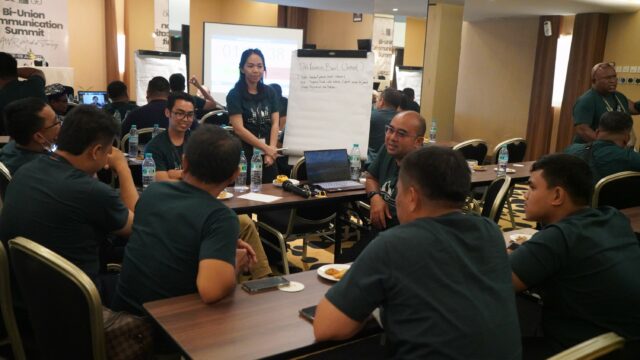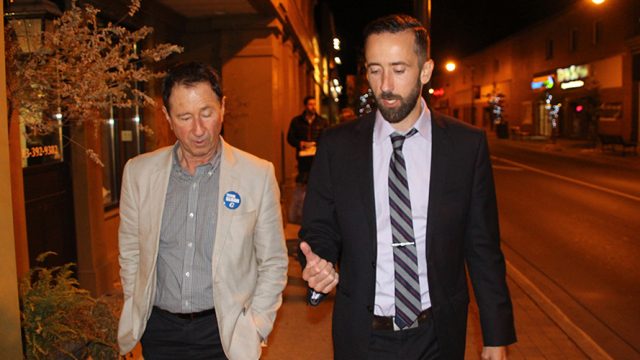Camp meetings have a rich tradition within the Advent movement—going back to the time of William Miller and the Second Advent Awakening of […]

Camp meetings have a rich tradition within the Advent movement—going back to the time of William Miller and the Second Advent Awakening of the 1840s in the United States. Beginning with three meetings in 1842, the number of Advent camp meetings grew rapidly, with 40 being held in 1843 and 55 in 1844.1
Following the Great Disappointment, the early Advent believers were reluctant to hold camp meetings for a time. By 1867, however, four years after the official organization of the Seventh-day Adventist Church, a series of small regional camp meetings were held. As a result of the success of these smaller meetings, the General Conference discussed hosting a camp meeting “for the whole field.”2
This general camp meeting was to serve two purposes: first, as a source of “spiritual good,” and second, for “the promulgation of our views among the people.”3 It was decided that a rural setting would best serve the purposes for such a meeting, and so Seventh-day Adventist Ephraim H. Root volunteered his farm in Wright, Michigan, as the site.4
THE GROWTH OF ADVENTIST CAMP MEETINGS
This was the first official Seventh-day Adventist camp meeting, and the tradition continued to grow during the 1870s, with annual gatherings across North America. By the 1880s camp meetings were well established, with a regular “camp meeting season,” when believers gathered for spiritual encouragement and refreshment. It was also a place to promote Adventist literature, education, and more.
Camp meetings continued to increase, and by 1904 the denomination could boast that 68 camp meetings were held in North America and an additional 15 held globally.5
Another important purpose of camp meetings was to serve as an evangelistic tool. And this proved to be the case in a very personal way for the Wilson family.
AN INVITATION TO CAMP MEETING
There was a man named William who was an engineer, farmer, and businessman. Born in Ireland, he immigrated to the United States around 1870. He and his wife, Isabella, lived in Philadelphia, where he worked as an engineer building locomotives. In time they headed west to the Redwoods of northern California to do logging, before settling near Healdsburg, where William became a fruit and cattle rancher and owned a country store.
Eventually the couple had four sons—William (Jr.), Ray, Nathaniel, and Walter. At some point Isabella became a Seventh-day Adventist, but her husband was not so interested in religion.
In 1905 tents were erected near Healdsburg, California, for a Seventh-day Adventist camp meeting. Isabella and the boys attended, and she invited her husband to join them for the Sabbath service. To her delight, he did.
As William sat under the tent, the speaker began to unfold the wonderful truth about Jesus, sharing the need of all sinners to have a Savior and to allow Him to change their lives. The speaker made an earnest appeal, and, much to the surprise and joy of Isabella, William stood up and went to the front, giving his heart to the Lord. He studied this precious Advent message for a year. He closed his store on Sabbath and trusted God for the future. He was baptized and later became the head elder of the Healdsburg Seventh-day Adventist Church. Christ changed his life.
William and Isabella Wilson were my great-grandparents, and the speaker who preached so earnestly about Jesus was Ellen G. White. After James White died, she moved to Healdsburg and was living near Healdsburg College—the forerunner to Pacific Union College.
My grandfather Nathaniel remembered Ellen White coming to their home when he was a boy, and how she lovingly told stories to him and his brothers as they sat at her feet. The Wilson family owes so much of its knowledge of this precious Advent message to the direct, practical, evangelistic activity of Ellen White.
AN IMPORTANT OUTREACH
Today camp meetings continue to serve an important purpose. Not only are they a wonderful place to fellowship with other believers, listen to inspiring music and presentations, and enjoy practical workshops, but they continue to serve as an important evangelistic outreach tool.
Ellen White wrote, “The camp meeting is one of the most important agencies in our work. It is one of the most effective methods of arresting the attention of the people and reaching all classes with the gospel invitation.”6
She continues, as if writing today: “Ambition and war, pleasure and money-making, absorb the minds of men. Satan sees that his time is short, and he has set all his agencies at work, that men may be deceived, deluded, occupied, and entranced, until probation shall be ended and the door of mercy be forever shut. It is our work to give to the whole world—to every nation, kindred, tongue, and people—the saving truths of the third angel’s message.”7
Friends, as we approach Christ’s soon coming, I invite you today not only to attend a camp meeting, convocation, or congress, but to invite someone to come with you—perhaps someone who has never experienced anything like this before—so they too can “taste and see that the Lord is good.” “Blessed is the man who trusts in Him!” (Ps. 34:8).
1 See Michael W. Campbell, “Camp Meeting,” Seventh-day Adventist Encyclopedia, accessed Mar. 31, 2024, https://encyclopedia.adventist.org/article?id=I92L&highlight=campmeeting.
2 Arthur W. Spalding, Captains of the Host (Washington, D.C.: Review and Herald Pub. Assn., 1949), p. 354.
3 Editor’s note, Advent Review and Sabbath Herald, Aug. 11, 1868, p. 128.
4 See Michael W. Campbell, “Camp Meeting.”
5 “Historical Summary,” 1905 Yearbook of the Seventh-day Adventist Denomination (Washington, D.C.: Review and Herald Pub. Assn., 1905), p. 185.
6 Ellen G. White, Testimonies for the Church (Mountain View, Calif.: Pacific Press Pub. Assn., 1948), vol. 6, p. 31.
7 Ibid.








